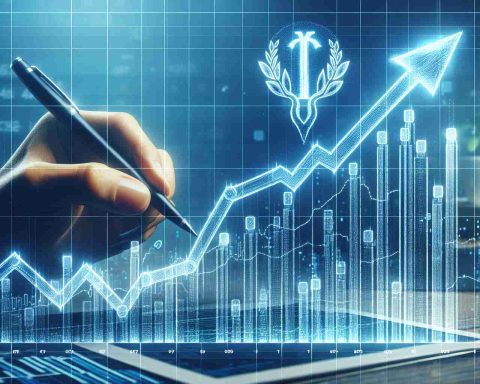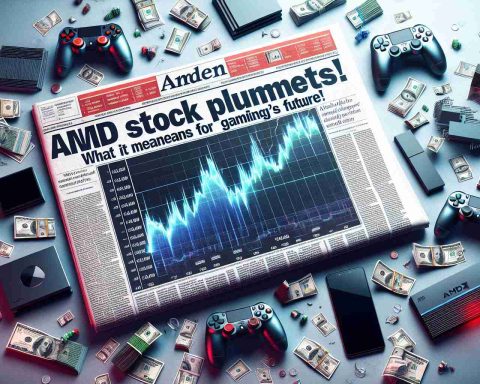In a surprising strategic pivot, billionaire investor Stephen Mandel of Lone Pine Capital has significantly adjusted his portfolio by reducing his stake in a major semiconductor company and investing in a globally recognized coffee brand. This shift comes amidst a chaotic financial atmosphere where investors were busy digesting earnings, election results, and other financial updates in November.
Institutional investors with over $100 million in assets had a key deadline on November 14 to file Form 13F with the SEC, revealing their latest stock activities. These filings are invaluable, shedding light on what top investors are buying or selling.
Stephen Mandel, a prominent figure in the investment world, oversees $13.4 billion across 29 stocks. Recently, he has been steadily selling shares of Taiwan Semiconductor Manufacturing (TSMC), a leading player in the chip fabrication sector. Over the past year, Mandel’s fund has reduced its TSMC holdings by 46%, selling more than 3.5 million shares. Despite TSMC’s solid positioning in the booming AI sector, concerns such as a potential AI bubble, regulatory hurdles, and valuation issues may have prompted this decision.
On the flip side, Mandel has directed significant investment into Starbucks, purchasing over 4 million shares. This move positions Starbucks as the fund’s 18th-largest holding. Starbucks, despite facing challenges, including declining sales in China, has shown promise under new leadership. The appointment of Brian Niccol, former CEO of Chipotle, as Starbucks’ new chief executive has driven optimism. Niccol is implementing strategic plans to enhance store operations, streamline the menu, and leverage technology to improve customer experience.
As the market watches closely, Mandel’s strategic moves reflect a keen eye for potential growth amidst shifting economic landscapes.
A Billionaire’s Game Changer: Investing Amidst Uncertainty
In a world where market volatility is the norm, investors constantly adjust their strategies to navigate financial turbulence. Billionaire investor Stephen Mandel’s latest moves have certainly captured attention. While much of the focus has been on his decisions to shift away from semiconductor giant Taiwan Semiconductor Manufacturing (TSMC) towards a stronger stake in Starbucks, the deeper implications of these actions unveil a tactical approach worth analysis.
Understanding the Portfolio Shift: Insights into Mandel’s Strategy
Stephen Mandel’s decision to reduce holdings in TSMC and increase investment in Starbucks is more than just a routine portfolio adjustment. It represents a strategic pivot in response to the current market dynamics. Despite TSMC’s robust position in the AI sector, Mandel has likely responded to indicators pointing towards a potential AI bubble. Additionally, growing regulatory challenges and valuation pressures might have influenced his decision.
Conversely, the investment in Starbucks could be seen as a vote of confidence in the brand’s resilience and growth potential, particularly under new leadership. The appointment of Brian Niccol as CEO shines through as a catalyst for change, with his track record of turning Chipotle around being a promising sign for Starbucks investors.
Analyzing the Societal and Market Trends
The current economic landscape is marked by shifting consumer behaviors and emerging market trends. As we’ve seen with Mandel’s recent investments, there is a growing focus on consumer staples and technology-driven improvements within established brands. Here’s why Starbucks fits the bill:
1. Resilience in Global Operations: Starbucks has shown adaptability, especially in difficult markets such as China. Despite setbacks, its global footprint ensures diversified revenue streams.
2. Technological Integration: By leveraging technology to enhance customer experience, Starbucks is not only catering to a tech-savvy clientele but is also improving operational efficiency.
3. Leadership Moves: Niccol’s strategic changes in operations and menu revamps signal a path to revitalized growth, potentially appealing to both investors and consumers.
A Comparative Look: Starbucks vs. Semiconductor Investments
The choice between consumer-focused brands like Starbucks and tech-heavy stocks such as TSMC encapsulates a broader investment debate: stability versus potential. While tech stocks promise high returns driven by innovation and digital transformation, the consumer sector offers steady performance with lesser volatility.
– Pros of Investing in Consumer Staples: Stable cash flow, less vulnerability to sudden market shifts, and long-term growth driven by continuous demand.
– Cons of Investing in Semiconductors: High volatility, susceptibility to regulatory changes, and rapid technological shifts.
Market Predictions: What Lies Ahead?
Looking forward, Mandel’s strategic adjustments may resonate with a broader trend among institutional investors who might favor stability amidst geopolitical tensions and market volatility. The dual focus on operational improvements and strategic leadership changes at Starbucks could provide a model for other large-scale consumer brands.
In conclusion, Mandel’s investment moves reflect both the challenges and opportunities presented by the current economic climate. Those keeping an eye on market trends will likely watch his next steps to gauge future shifts in investment strategies.
For more information on investing trends and market analysis, visit the Wall Street Journal.


















